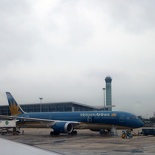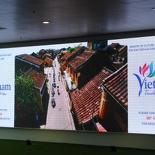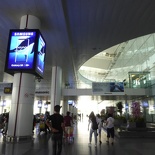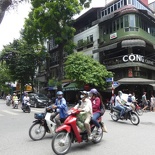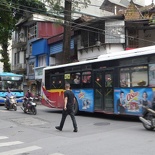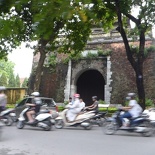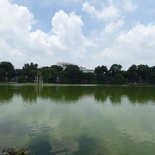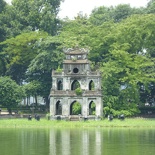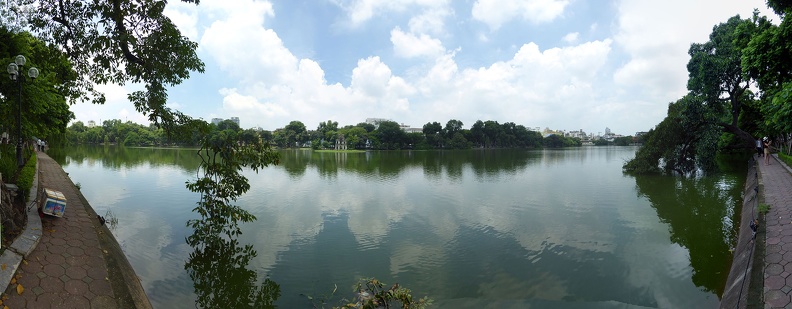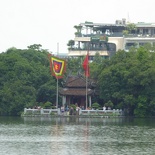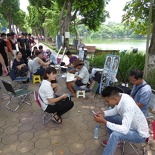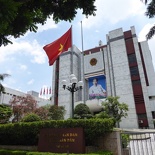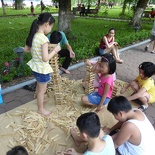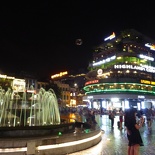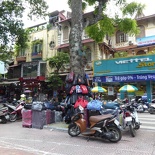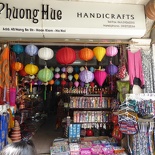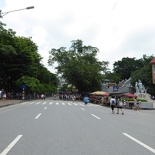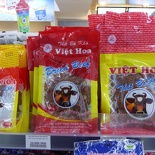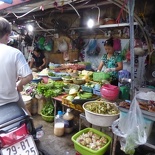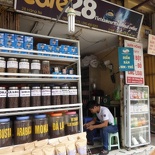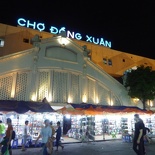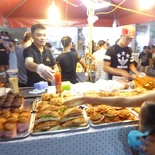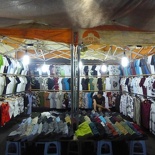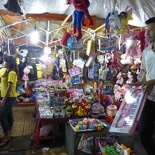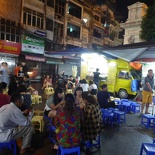Good morning Vietnam from Hanoi City! Land of the Pho and Coffee! Vietnam is a South East Asian nation geographically north of Thailand, beside Laos running and facing the South China Sea. As such it is one of the best places in South East Asia for seafood and home to few of the pristine sandy beaches in the region.
Moreover, Vietnam is one of the 12 countries which make up ASEAN. It comprises of countries such as Malaysia, Indonesia and Singapore to name a few. Today I will be looking at Hanoi, the capital of Vietnam.
Within Vietnam, Hanoi lies on the right bank of the Red River. It is situated 1,760 km north of the next busiest Vietnamese city- Ho Chi Minh City. It is also 120 km west of Hai Phong city. Historically, Hanoi was the most important political center of Vietnam.
The city served as the capital of French Indochina from 1902 to 1954 prior being eclipsed by Huế, the imperial capital of Vietnam during the Nguyễn Dynasty (1802–1945). It became the capital of North Vietnam from 1954 to 1976. Following the North’s victory in the Vietnam- American war, it became the capital of a reunified Vietnam from 1976 till today.
There are many things to see and do in Hanoi. With a present estimated city population of 7.7 million people, Hanoi is the country’s second largest city by population. Most of the city activities reside within its metropolitan area, surrounded by an outer city of farmlands.
Transportation
Motorcycles are synonymous to any Vietnamese city and Hanoi is no exception. Traffic enforcement and road crossings often does not involve right of way. Rather, anyone who manages to get in front of traffic has the right of way. This gave rise to the term “blind crossing” where simply blindly crossing the road gets you safer to the other side than even using pedestrian crossings.
There are no metro or subway systems here, only buses. Vietnam is also one of the few countries which you can call an Uber (or grab) motorcycle ride- one of the most efficient (but outrageously dangerous) ways to get around the city.
simply blindly crossing the road gets you safer to the other side than even using pedestrian crossings. Despite the chaos, Vietnam is home to few of the best drivers in the region.
Despite the chaos, Vietnam is however home to few of the best drivers in the region. Somehow the traffic here will work itself out. Traffic here has its own set of codes here and horn beeps are effective methods of driver to driver communication.
Sword Lake
One of the best places to experience Hanoi is to visit the Old town or “Old Quarters”, which is by a picturesque Lake also known as Hồ Gươm. Ho Guom means “Lake of the Returned Sword” or simply just Sword Lake.
The legend here has it that Le Loi King made a sword from a metal bar which the words “Thuan Thien” (harmonious with heaven) were suddenly etched onto. One day he returned the sword to the Dragon King via a tortoise took the sword down this lake. From then on, Thuy Quan (now Hoan Kiem) became Hoan Kiem lake.
The lake water itself is greenish-blue depending on the reflection of the sky. It is of course, full of tortoises. It is one of the major scenic spots in the city and serves as a focal point for its public life.
Sword Lake Panorama
Prominent lake features here will be the Turtle Tower (Tháp Rùa) in the center of the lake a lone sculpture sitting seemingly out of place in the middle of the lake.
At night the tower is illuminated by flood lights where the entire lake region also comes to life with night life. Being the capital of Vietnam, Hanoi is also home to several Government buildings. Notably, there are several of such official buildings prominently situated around the Lake too, distinguished by their large country flags.
The Old Quarters
Since the early trading days, at the beginning of the 20th century Hanoi consisted of the “36 streets”. The citadel, and some of the newer French buildings south of Hoàn Kiếm lake, are now part of present Hoàn Kiếm district. Moreover, each of these streets are famous for its specializations in trades such as traditional medicine and local handicrafts, including silk shops, bamboo carpenters, and metal smiths. These streets makes up the core of the Old Quarters here see merchants and households coming together for trade, each specializing in their own respective field of trade.
The Old Quarters today still maintains most of the original street layout and some of the architecture of old Hanoi. Though most of the old stalls are now closed and home to commercial entities, such as electronic stores, restaurants serving local cuisine specialties as well as several cafes, clubs and bars, which attracts crowds, especially at night. There are also several interesting wares and musings too, such as preserved meat jerky as well as shops full of aromatic ground coffee.
The street names today still reflect these specializations. You can still find some stores retaining exclusively their original nature of commerce. You can still find on a stroll through the criss-crossing streets of the Old Quarters.
Food and Night Markets
Every Friday, Saturday, and Sunday evening, a night market in the heart of the Old Market district opens for business. The night market starts off from Hàng Giấy street from the Hang Dau Water Tank (Bốt nước Hàng Đậu, a historical landmark). Here, lines of open air-stores fill the entire road through Đồng Xuân Market and running all down to Hàng Đào road towards the Sword Lake area.
The night market stores are setup right on the middle of the roads. Hence, converting them essentially into a pedestrian road hawking a variety of clothing, souvenirs and food. With the exception of high-end malls such as the Trang Tien Plaza along Trang Tien street, large malls are rare in Hanoi. It is the Hoàn Kiếm district here where you can mostly find most of the mainstream shopping in Hanoi. The location is particularly a choice favorite of the locals too. The draw being mostly small family-owned stores selling goods of the trade at really good prices.
Panorama of Đồng Xuân Market at night.
When shopping at the markets, a general rule of thumb is to bargain down 30% of the initial offer price. It is not uncommon to be able to bring the price of a sports apparel T-Shirt riddled with branded logos (Under Amour, Adidas clothing and North face bags) are really popular here from 400,000 VND down to 100,000 each. You stand a better chance of obtaining lower rates if you bundle in more items. The night markets open till late, often past midnight where you start to see shops starts wrapping up for the evening.
Night Market down along Hàng Đào road
Food is generally very affordable in Hanoi. There are plenty of dine-in restaurants which you can get servings of authentic Vietnamese food to eat in comfort. Unless you have a good stomach, it will not be recommend to dine at the road side street hawkers as hygiene and sanitation is highly questionable. But you will be fine in restaurant establishments which you can find around the Hoàn Kiếm district area.
Furthermore, some other prominent places include the Flag Tower of Hanoi. It is a massive part of the 900-year-old Hanoi Citadel which was discovered in central Hanoi. It is located near the site of Ba Đình Square. Moreover, you could pay a visit to Ho Chi Minh Mausoleum to see the body of Ho Chin Min. However, that may involve at least 2 hour queue wait. Also, the mausoleum is also where you can find the One Pillar Pagoda (Chùa Một Cột). It was built in 1049 based on the dream of king Lý Thái Tông (1028-1054). It can be found in the Buddhist temple which resides within.
Being a North Vietnam city, it is not unusual to see communist propaganda littered across billboards and signs all around the city. With a single party currently in control of the city, communism is still pretty much the way of life here. This is in contrast to the more liberal South Vietnam. Hence, it is not uncommon to still see people wearing Vietcong army helmets on the streets, a move mostly shunned by the people of South Vietnam.
In all, Hanoi is one of the few cities offering a blast into the past. The slow and simple pace of life, coupled with really low standard of living does allow you to stretch your dollar far in a region not too far off from home.
View more city photos of Hanoi here.

